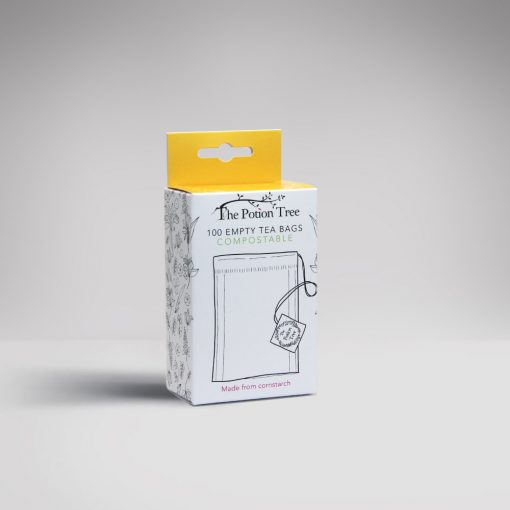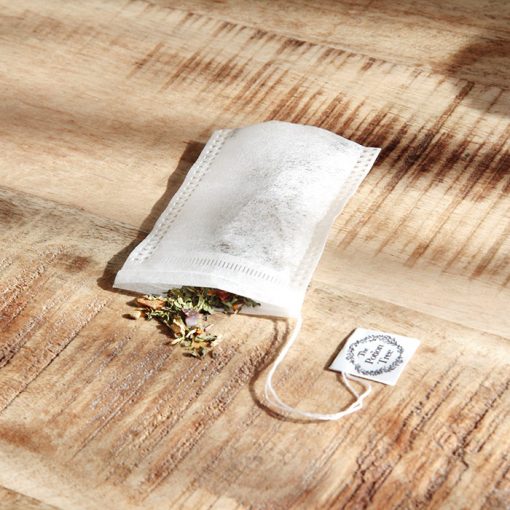Tea and beverage
Can children drink herbal teas?
If you love herbal teas, you’ll know that they have many wonderful benefits in supporting digestion, calming the nervous system, promoting sleep, and much more.
But could herbal teas help kids, too? More importantly – are they safe for them?
There are many reasons children should benefit from the properties of herbal teas. Kids get colic, tummy bugs, coughs, and colds, and sometimes they can be a little hyperactive! And there is plenty of scientific evidence that herbs can help with these things.
The other great thing about herbal teas is that they lack the sugar and artificial colours and flavours that so many commercial beverages contain.
Although herbal teas do have proven benefits, there are a few plants that may pose mild health risks to infants and young children. So, before you go brewing up a mugful of herbs for your little one, here are some things to keep in mind…
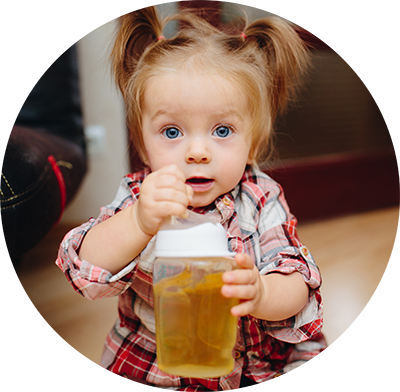
Avoid caffeinated teas
Black tea and green tea harbour important antioxidants that are great for adults – BUT these teas also contain caffeine, which isn’t so good for kids. Caffeine is a stimulant, which means it speeds up the messages travelling between your brain and your body. It gives you energy and helps you to feel more alert, but it’s not recommended in any amount for children under 12 years old. Caffeine can disrupt normal sleep and cause nervousness and anxiety. It’s also a diuretic, which means it increases urination and could upset a child’s electrolyte balance.
The good news is that many herbal teas are free from caffeine because they are made from the leaves, roots, and seeds of plants.
Don’t give them too much
Tea contains compounds called polyphenols, which can bind with iron. This can make it more difficult for a growing body to absorb iron. Iron is required for transporting oxygen to your cells and also energy production. Low iron levels can cause tiredness and lethargy, and make it difficult to concentrate.
While children would have to drink a LOT of tea for this to happen, it’s worth keeping in mind that iron is vital for their brain development and growth.
Which herbal teas are safe for kids?
Fortunately, there are still plenty of herbs that are both safe and beneficial for children – especially when it comes to treating restlessness or tummy issues!
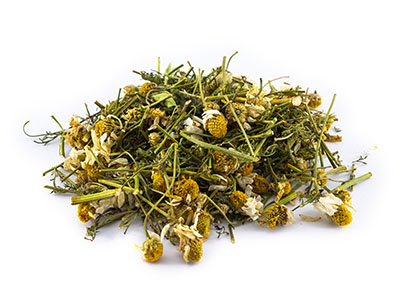
Chamomile
Chamomile is a sweet and gentle herb with benefits for both mums and kids. It’s a proven carminative, which means it helps to calm the mind and body and promote relaxation. It’s a proven antispasmodic and anti-inflammatory, and helps to relieve stress and anxiety. It’s also great for bedtime as it promotes restful sleep and soothes tummy problems like colic and indigestion.
Fennel
Fennel has long been used to treat gas, colic, and other digestive issues. It has a lovely sweet flavour that many children enjoy. Fennel is also useful in relieving inflammation of the upper respiratory tract, which can make it very useful when a child has a snuffly nose.
Ginger
Ginger is a sweet and warming spice, famous for its anti-nausea properties. It’s a wonderful digestive aid and can help calm an upset tummy. It can also help with congestion during coughs and colds. Just make sure that it isn’t too strong, as it can be a little spicy for sensitive mouths.
Lemon balm
Lemon balm is an incredibly gentle herb and is often used in natural supplements for kids. Its carminative properties help children fall asleep more easily, and it can alleviate anxiety and hyperactivity. A 2006 study has even shown that a combination of lemon balm and valerian root was effective in reducing insomnia and restlessness in children under 12.
Examples of safe teas for children :
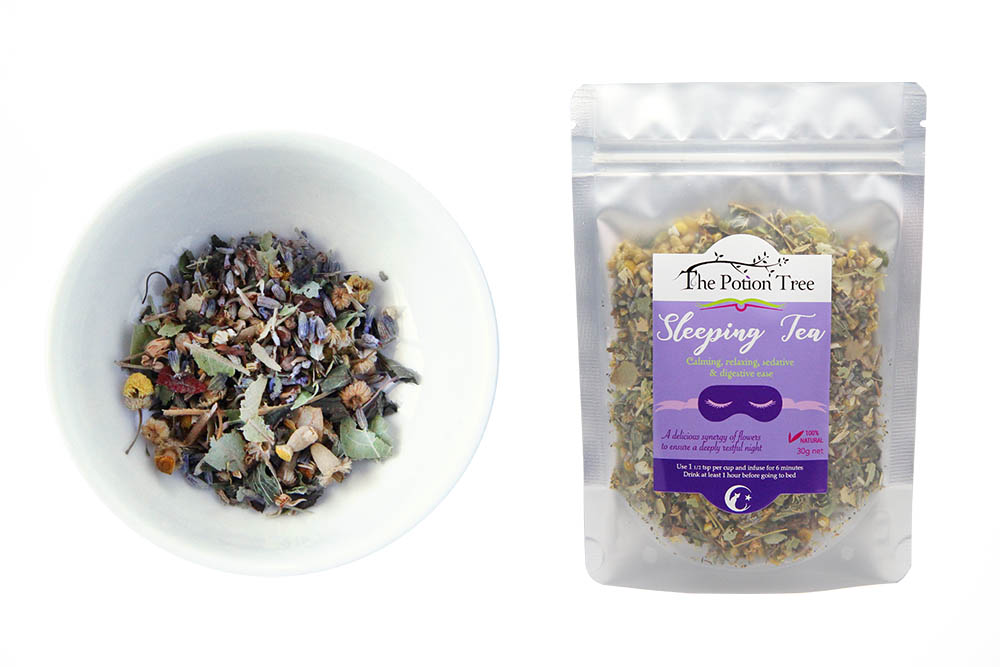
The Potion Tree Sleeping Tea
This tea is great for kids! It contains all of the ingredients mentioned above, as well as Lavender flowers, lime tree (tilia), and peppermint.
Fragrant lavender is the ultimate bedtime tea. It’s long been known for helping to quiet an anxious mind and induce relaxation and is safe for kids of all ages.
Lime tree (Tilia) leaves and flowers also help to reduce nervousness, tension, and fatigue. It’s very effective in relaxing the body and mind, which can bring on sleep and relieve digestive issues caused by stress.
Refreshing peppermint is excellent for treating flatulence, diarrhea, and nausea. It’s particularly good at soothing inflammation caused by a cold or flu, as well as indigestion.
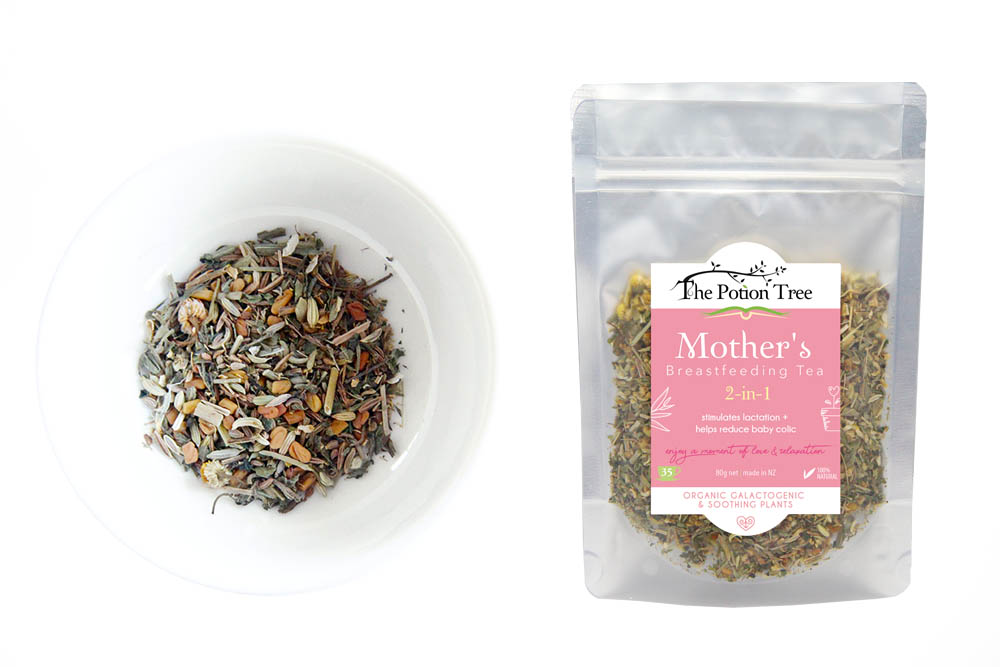
The Potion Tree Mother’s Breastfeeding Tea
This all-natural tea contains a wonderful range of herbs that can help settle a colicky tummy. Along with fennel and chamomile, Breastfeeding Tea contains fenugreek, nettle, caraway, aniseed, and goat’s rue.
Nettle is a nutritive herb that helps to reduce inflammation and histamine production, making it one of the best herbs for allergies. Caraway can help to reduce intestinal spasms and ease the pain and discomfort associated with colic. Sweet-tasting aniseed is great for boosting digestive function and promoting calm before bedtime. Goat’s rue is best-known for its ability to increase lactation, but it’s also helpful in treating digestive problems like constipation, as well as lowering blood glucose levels.
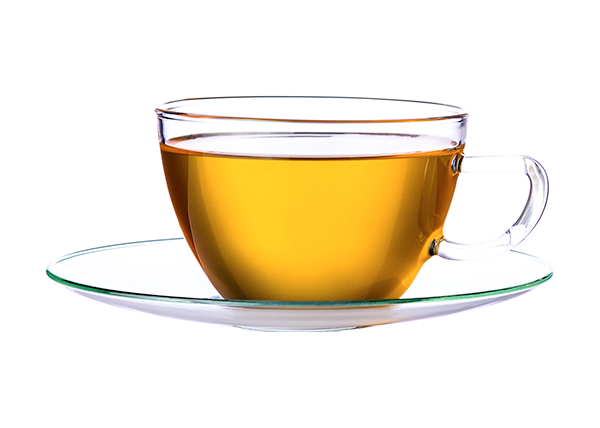
In a nutshell?
Yes, children can drink herbal teas – but it’s very important that you know exactly which herbs are in the tea first. Also, be sure to check that the tea is caffeine-free. If there’s an ingredient you don’t recognise, look it up before giving it to your child.


